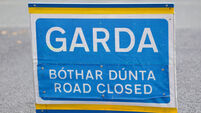Oncologist signed blank prescription form for doctor which was used to obtain addictive drugs

Inquiry heard Dr Yousif of Oranmore, Co Galway, admitted providing a signed blank prescription with the hospital’s headed notepaper around April 30, 2018, to another doctor, known as Doctor A, who claimed she wanted medicine for her sick mother who was living in Sudan. Picture: Pexels
A consultant at Sligo University Hospital has appeared before a medical inquiry on charges of professional misconduct for providing a signed blank prescription form to another doctor which was used to obtain a large volume of addictive and potentially fatal drugs.
However, the inquiry by the Irish Medical Council’s fitness to practise committee into the conduct of Dr Ala Yousif, a consultant oncologist at SUH, was halted after he gave an undertaking not to repeat the action that was the subject of a complaint to the medical watchdog.











